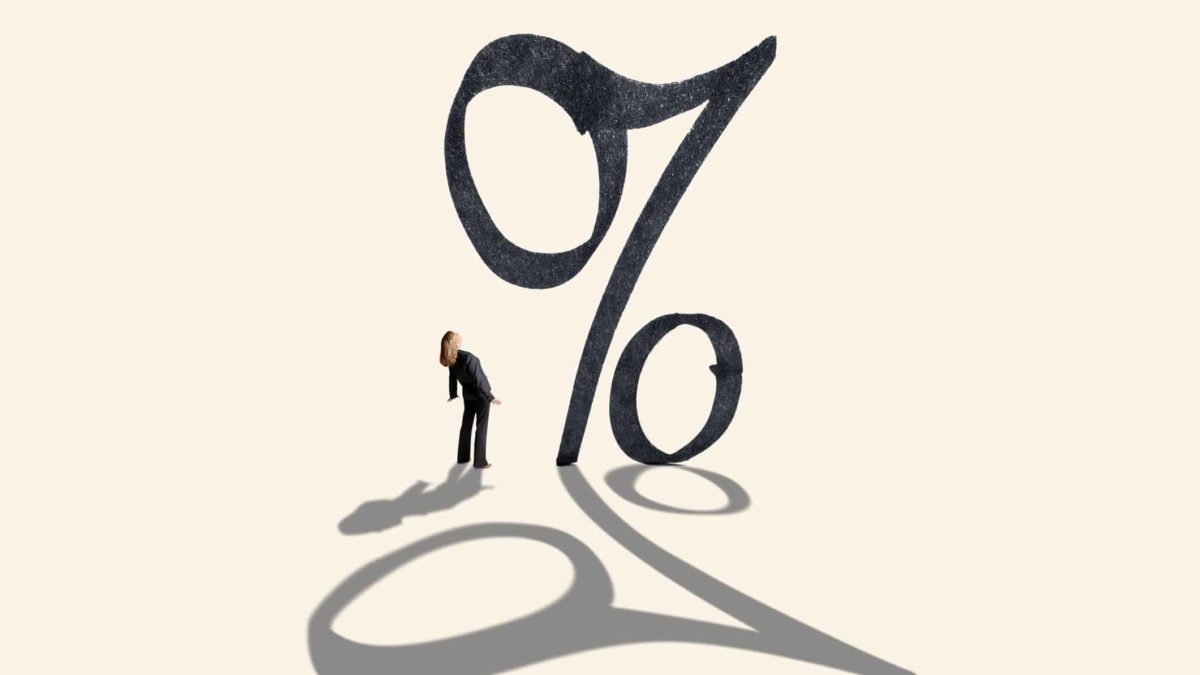Interest rates are typically viewed as one of the most important inputs when it comes to the valuation of ASX shares. However, interest rates are not the only thing that matters. In fact, some market commentators don't think they matter much at all.
Some businesses have suffered significantly during this inflationary period. The last few years have been a painful time to have debt because interest rates have risen significantly. Businesses like real estate investment trusts (REITs) have felt the pain of higher rates, partly from investor pessimism and partly from higher financing costs.
However, despite the Reserve Bank of Australia (RBA) cash rate being at the highest point of this cycle – at 4.35% – the S&P/ASX 200 Index (ASX: XJO) hit an all-time high this week.
Writing in The Australian, Ken Fisher, the executive chair of Fisher Investments, suggests investors ignore interest rates.
Interest rate commentary
Fisher wrote that higher interest rates have not impacted the global economy or the Australian economy as much as one may have expected over the last few years:
Higher rates no doubt pinched many households. But why haven't rate rises hurt the overall economy more? Policy rates "work" by tweaking banks' funding costs for new loans.
But a global deposit glut from Covid stimulus flooded banks with deposits. They didn't need funding, muting policy rates' effects. Hence, the world economy grew throughout these last two years of "tightening". Some higher-interest-rate countries such as the US grew faster than ultra-lower-rate ones (such as Japan)!
And stocks? Pundits swear stocks need rate cuts to rise. But why? The ASX 200 hit its 2022 low on June 20 – after two RBA rate rises. It climbed through 11 more in 2022 and 2023. From that low through to November 8 this year, the ASX 200 rose 42.4 per cent.
He pointed out that it was similar to the US share market, where the market rose before rate cuts came along.
Fisher said that central banks don't determine the direction of economies or stocks. He thinks the influence of central banks is "routinely overblown".
He also said that if low interest rates were the only thing that mattered, Japan's ultra-low interest rate would have led to its share market outperforming other countries.
Fisher finished his forthright piece with these final thoughts:
Central banks can't dictate stocks' moves. Markets are fully global, weighing the next roughly three to 30 months' likely profitability against prior expectations. Interest rate shifts are merely a small input to that.
Might Trump's proposed tariffs change the RBA and others' calculus? Perhaps, if they even materialise to the extent feared now. Regardless, this bull market doesn't hinge on central bankers' talk or actions. Ditch the fixation.
My 2 cents
I think Fisher makes some good points. The last two years have shown how it can be foolhardy to wait for interest rate cuts – or rises – before taking action on investments.
Of course, the share market is a forward-looking, complicated thing. Investors are quick to price in expectations of cuts and raises, but that doesn't mean valuations will stay at that level forever.
I'd argue the market declines we saw during 2022 and some parts of 2023 were caused by the market pricing in higher-for-longer rates.
But, even if company price-earnings (P/E) ratios fall, ongoing earnings growth can continue to send share prices higher as time goes on. For example, if a company's P/E ratio stays the same and its profit rises by 10% over a year, I'd expect the share price to rise by 10%. That's why I think it's important to invest in growing businesses.
The largest US shares have seen continued earnings growth over the last few years, and there has also been a huge investor rush into AI-related stocks such as Nvidia.
Ultimately, just as Fisher says, I wouldn't let interest rate changes stop me from making investments. There are nearly always good opportunities on the market.
Remember, rising earnings (and expectations of long-term profit growth) help share prices rise over the long term. That's what I think is the biggest driver of share prices.









